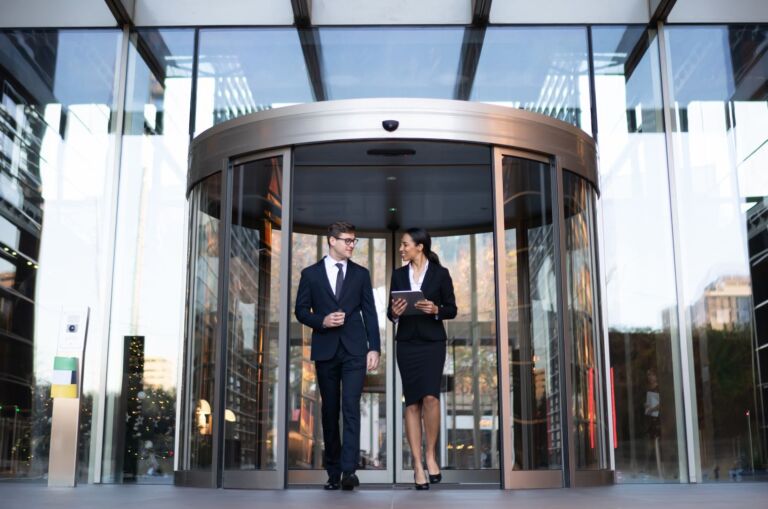The United States is home to six ABA-accredited law schools at Historically Black Colleges and Universities (HBCUs), some of which have produced our nation’s most perennial lawyers including Thurgood Marshall (Howard University Law 1933) and H.M. “Mickey” Michaux, Jr (North Carolina Central University Law 1964). While these institutions continue to produce highly successful lawyers and are responsible for approximately 25% of law degrees earned by Black students, these six accredited law schools make up just 3% of the nation’s law schools. This disparity cannot persist if we want to continue diversifying the field of law by building the careers of strong Black attorneys.
HBCUs have a proven track record of developing students personally and professionally through access to communities of color and underserved communities of students. The following includes critical areas for HBCU law schools to focus on and considerations for non-HBCU law schools working to diversify their student populations, therefore diversifying the field of law.
With the proper investment and funding, HBCU law schools can continue to lead in diversifying the field of law, which we have historically done for decades. Despite these historic accomplishments, HBCUs have continually had to overcome daunting challenges and continue to encounter barriers, including increasingly shrinking budgets and rising debt for students. Unfortunately, many critics of higher education spending have openly criticized and questioned the need for HBCU law schools, which has led to alarming budget cuts, especially following the financial recession of 2008, and again following the COVID-19 pandemic.
In addition to these shrinking budgets, Black undergraduate students, on average, graduate with more debt than white students, and those that attend HBCUs take on between 20 and 30% more debt than those who attend non-HBCU programs. It’s imperative that we find ways to help our students afford their undergraduate programs so they even have the option to study law. We cannot develop skillful professionals with the chains of crippling debt tied to them. This increased debt is driving even more students away from HBCUs, and some smaller HBCUs are seeing concerning enrollment drops. I am optimistic that by putting the proper resources and support systems in place and providing students with the confidence that they will not graduate with crippling debt, we can see these enrollment numbers rise again. HBCU law schools bring too much value to our students for them to not be given the resources they need to succeed.
As we look at the systemic racism we are fighting today, it is essential to note that many of the most influential civil rights leaders went to HBCUs, including many lawyers that won landmark cases. Some of these notable leaders include Thurgood Marshall; A. P. Tureaud; H.M. “Mickey” Michaux, Jr.; Martin Luther King, Jr.; Diane Nash; and Dave Dennis; among others. These strong Black alumni are testaments to the education potential of HBCUs. If we are investing in HBCU institutions, particularly in our HBCU law programs, we are investing in changemakers that will more likely than not contribute to a more equitable future — similar to their predecessors.
There are also simpler ways to make recruitment easier for HBCU students. Surprisingly, many law schools only promote an early action/decision or final application deadline. Though JD admissions are unique, it’s been shown that multiple admissions deadlines expand and improve the quality of law school applicant pools. Additionally, increasing the number of application deadlines opens the door to further amplify this effect at multiple points in the holistic admissions cycle.
Additionally, we should be giving prospective law students more ways of showing they belong at our programs, regardless of background. Broadening admissions criteria gives HBCU law schools an advantage of attracting more diverse talent and expanding the realm of undergraduate students who would be interested in HBCUs. Programs should consider diverse academic and professional experience from all applicants, which can be done through a holistic admissions process. We are witnessing law schools increasingly accept GRE scores in lieu of LSAT scores. If an applicant is looking for a way to best exemplify their readiness for law school while showcasing their full abilities and background, they should consider taking the GRE as a way to do so. In addition, the University of Arizona’s JD-Next program, which ETS sponsors and of which Southern University Law Center is an active participant, provides another avenue through which students can develop the legal skills needed in law programs across the country.
Finally, HBCU law schools stand out from non-HBCUs because we are all mission-based institutions. While we are not homogenous, we do have missions of educating Black students while serving our broader communities, something that is overlooked by law firms, particularly large and well-known law firms. Despite this fact, HBCU law schools still have rich histories of professional and personal connections within the field of law, and within our diverse communities, far beyond the historical figures mentioned before. We produce highly qualified attorneys with diverse backgrounds, abilities, and talents, and firms need to start leveraging their connections at HBCU law schools if they truly want to diversify their staff.
With extensive years of providing access to legal education, HBCUs are one piece of the puzzle in diversifying the field of law and giving more opportunities to lawyers of color. We prepare highly qualified attorneys. We support and give back to our communities. We have diverse personal and professional networks with strong connections to institutions across the country and the legal community. We are a national treasure in American legal education, and the value of HBCUs to big, medium, and small law firms should be more evident than we currently receive credit for. I am confident that if HBCU law schools and the legal community consider these recommendations we can continue being beacons in our immediate communities and strive to make true impact within the legal community.
John Pierre is the Chancellor at Southern University Law Center and serves as a member of ETS’s Legal Education Advisory Council.








Comments (1)
Many of the HBCU State Law Schools exist in States that have systematically and racially underfunded their State HBCU’S.
Efforts should be taken to sue their State as the HBCU’S in Maryland did to aquire equal funding. Have your law students investigate this as a project